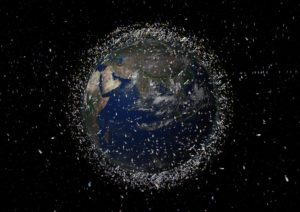
Coinciding with the Satellite 2018 Conference & Exhibition held at the Walter E. Washington Convention Center in Washington, DC during March 12-15, 2018, Teal Group space analysts have identified 12,230 satellites, probes and capsules to be built and launched to earth or deep space orbits between 2018 and 2037. They estimate the value of these space payloads at more than $272 billion.
The payload count for 2018-2037 reflects a 42% increase compared to the 8,607 payloads identified last year for 2017-2036 and 140% more than the 5,095 payloads for the 20-year look forward in 2016. The trend in the future market for space payloads continues upward, and it is being driven largely by the introduction of thousands of small, nano and pico (mainly “Cubesats”) commercial satellites designed to provide everything from broadband and mobile communications to meteorological, imaging and position location & tracking services.

Teal analysts identify 937 payloads “proposed” for launch in 2018 followed by 912 in 2019; 1,040 in 2020; 771 in 2021; 1,254 in 2022; 1,172 in 2023; 1,465 in 2024; 1,229 in 2025; 799 in 2026; and 982 in 2027. “Our mission model is a market forecasting tool,” said Teal Group senior space analyst Marco Cáceres. “I first created it back in 1992 as a complement to our World Space Systems Briefing service to help us understand what the space market might look like over the next 20 years.”
Teal Group publishes its detailed space payload numbers in a daily-updated online spreadsheet known as the Worldwide Mission Model Online.
In their latest update by spacecraft type, Teal analysts classified 10,570 (86%) of the payloads as commercial, 897 (7%) as civil (government non-military), 588 (5%) as military, and 275 (2%) as university and non-profit. Of the payloads, more than 83% of them are proposed for low earth orbits (LEO); 12% for medium earth orbits (MEO); 4% to geostationary orbits (GEO); and the rest to deep space or elliptical orbits. “It’s going to get extremely crowded at LEO,” said Cáceres.
 SpaceWatch.Global An independent perspective on space
SpaceWatch.Global An independent perspective on space

